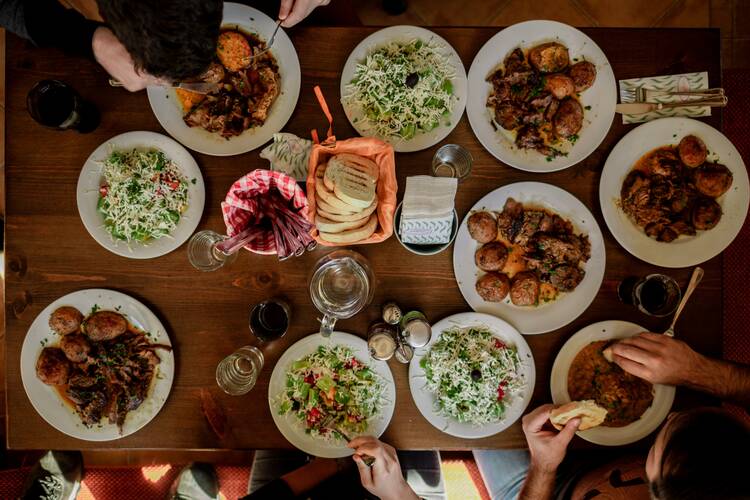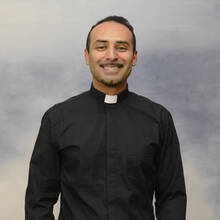Hospitality as a Christian virtue
This Sunday’s Gospel concludes the tenth chapter of Luke. The unit closes a section focused on discipleship. Throughout this chapter, from which the church reads today and on the past two Sundays, Luke has recounted Jesus’ teachings on discipleship. Luke’s accounts include the missioning of the seventy-two anonymous disciples, a discussion between a young scholar of the law and Jesus and, this Sunday, a scene with Martha and Mary in a domestic setting. With these narratives, Luke builds an understanding of discipleship that entails a need to proclaim the kingdom of God and interpret the kingdom through Jesus’ guiding principle of mercy-compassion. This Sunday’s Gospel passage, which closes Luke 10, introduces a third key element, the central role of hospitality.
“Martha, Martha, you are anxious and worried about many things” (Lk 10:41).
In what ways do the roles of Mary and Martha speak to today’s climate focused on productivity?
Has Jesus always been the center of your acts of service?
Where might the virtue of hospitality best serve your community today?
Hospitality is an ancient value in the religion of Israel. In this Sunday’s first reading, for example, Abraham entertained a special guest who turned out to be divine. The reader understands the nature of this extraordinary visitation from the very beginning of the account: “The Lord appeared to Abraham by the terebinth of Mamre” (Gn 18:1). But “looking up” Abraham thought he saw three men standing by. In Scripture, divine interventions often occur with multiple intermediaries, like the three men in this passage. Such ambiguities introduce mystery into the scene, so that even a knowledgeable reader will not be able to make full sense of the interaction. The mystery increases when Abraham, seeing three men, only addresses a single person, “Sir, if I may ask you this favor, please do not go on past your servant. Let some water be brought, that you may bathe your feet, and then rest yourselves under the tree” (Gn 18:3-4).
Abraham responded to the importance of the encounter, even though he may not have grasped its full significance. He offered the ancient version of the lavish hospitality still seen today in Mediterranean and Middle Eastern cultures. In societies governed by codes of honor and shame, pouring out one’s wealth on a guest establishes one’s own place in society and also grants considerable social status to a guest. By hastening to prepare a rich meal (meat and milk products were rarely consumed and usually associated with religious feasting), Abraham lavished honors on the strangers who appeared at his door.
This background provides context for this Sunday’s Gospel passage in which two sisters recognized a significant guest in their home. The account has some strange features. In the first century, it would have been unusual and possibly scandalous for women to be alone with an unrelated man in their home. Even more striking is the reversal of roles. Jesus takes on the role of host, caring for the needs of Martha and Mary. Jesus understood that what Martha needed was relief from her anxiety and what Mary needed was his full attention. He provided both for his guests. May our own discipleship match Jesus’ response in the communities we serve, through presence, awareness and kind acts of hospitality.








